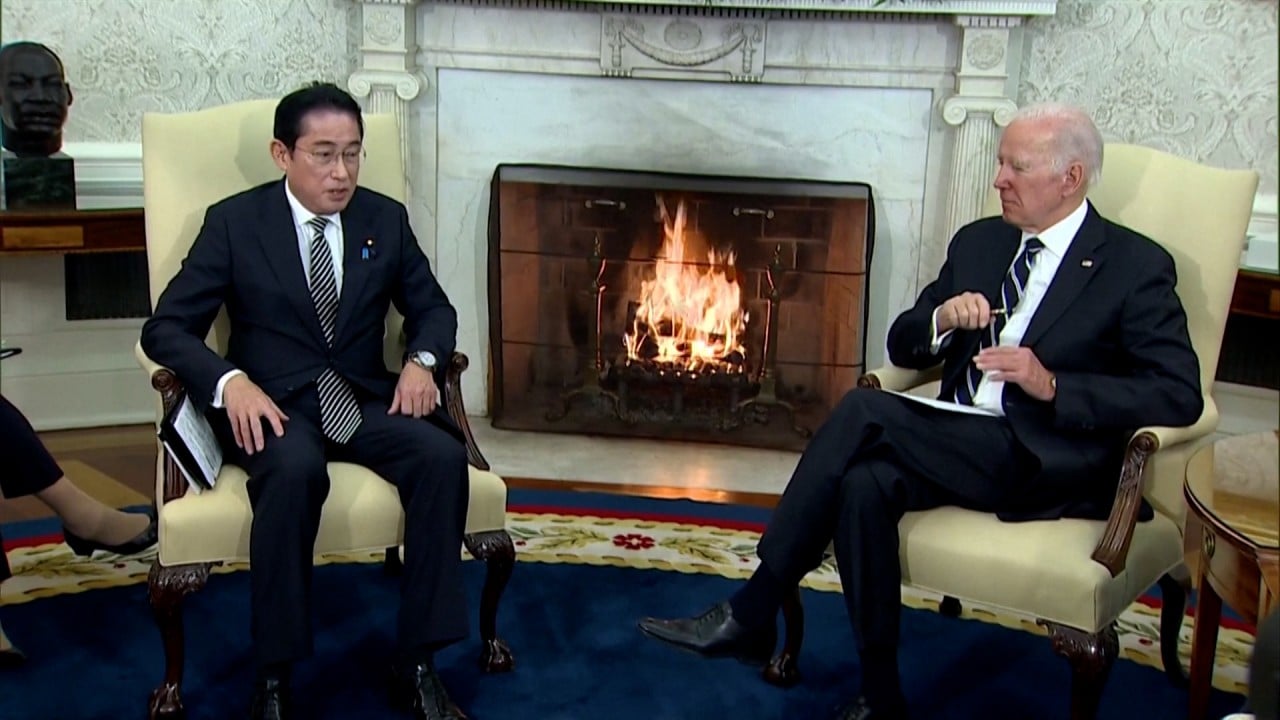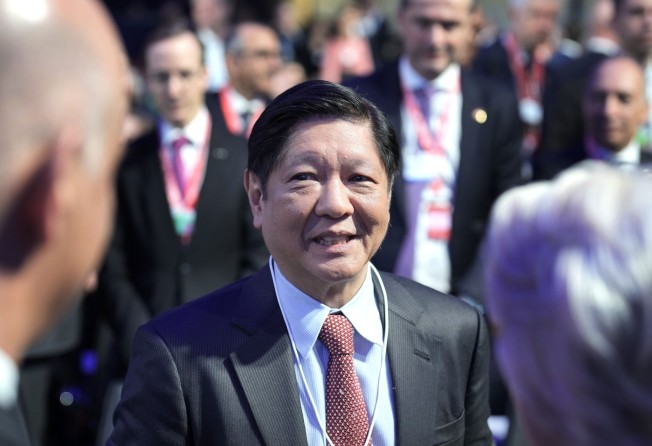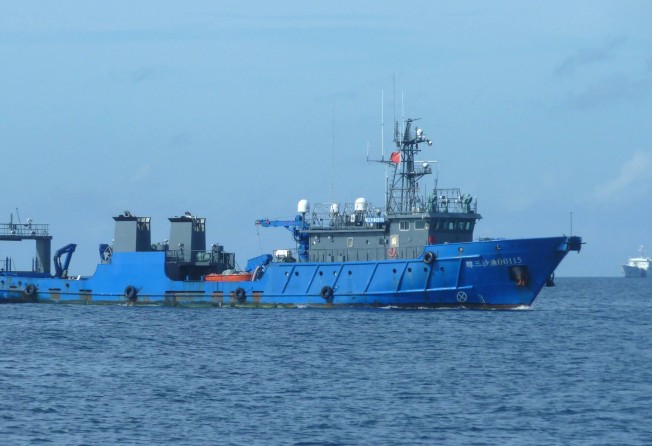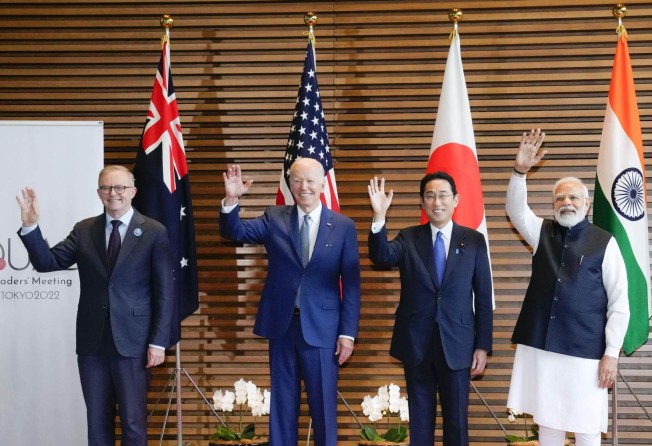
03:16
Biden and Kishida pledge to strengthen US-Japan ties as a counter to China

Philippine President Ferdinand Marcos Jnr will head a delegation of political and business leaders to Japan from February 8, with Manila and Tokyo seeking to deepen ties given new impetus under the former Abe administration.
Marcos is set to meet Prime Minister Fumio Kishida, who invited him to Tokyo when the two first met on the sidelines of the UN General Assembly in New York in September. They are expected to discuss trade, economic assistance and the security of the broader Indo-Pacific region.
First Lady Liza Araneta-Marcos, Senate President Juan Miguel Zubiri, House Speaker Martin Romualdez, former president Gloria Macapagal Arroyo, and Philippine business leaders will travel with President Marcos on the five-day visit, during which the leader and his wife will also meet Emperor Naruhito and Empress Masako.
Tokyo’s foreign ministry described Japan and the Philippines as “neighbouring maritime nations connected by historical bonds and strategic partners sharing fundamental values”, saying Marcos’ visit would “further deepen” bilateral cooperation”.
The two sides may, however, have slightly differing priorities within the relationship, observers say.
“The Philippines is especially keen to receive aid and economic assistance,” said Yuko Ito, a professor of international relations at Asia University in Tokyo.
“Manila is trying to make the most of its relationships with Japan, China and the US to obtain all and any economic assistance it can get, even though there are territorial issues with China,” she added.
While Marcos visited Beijing last month, Kishida still hopes to build on the strong links that his predecessor, the late Shinzo Abe, had with Manila’s leadership.
“Abe was a very good friend of the Philippines and he visited the country more than 30 times, even visiting the home of [former president Rodrigo] Duterte in Mindanao,” Ito said.
Abe tried to reinforce Tokyo’s commitment to a “free and open Indo-Pacific” and keep the Philippines in a like-minded alliance with other nations in the region, she said.
Manila is performing a balancing act, Ito said, as trade with China is vital for the economy, while defence and foreign ministers have long advocated closer security ties with the US and Japan to counter Beijing’s expansionist policies in the South China Sea and elsewhere in the region.

Japan has previously provided the Philippines with patrol vessels and aircraft to help Manila enhance its monitoring capabilities in the face of the growing presence of Chinese civilian and military forces in the islands and reefs off its northwest coast.
Stephen Nagy, an associate professor of international relations at Tokyo’s International Christian University, agreed security concerns were Japan’s priority.
He said Marcos’ statements on the South China Sea and Taiwan “are in line with Japan’s calls for peace and stability in the region and both countries see China as the fundamental challenge to that”.
Any economic agreements signed will be designed to provide Manila with increased autonomy from China and build closer trade ties with Japan and the US, Nagy added.

Closer economic ties would pave the way for greater disaster response capabilities and security ties, while there was also the possibility of the Philippines being encouraged to “play into, rather than join, the Quad security arrangement”, Nagy said, referring to the four-nation alliance involving Japan, the US, Australia and India.
The two sides are expected to sign at least seven agreements in areas other than defence, including deals on infrastructure development, agriculture and information and communications technology. There will be pacts on humanitarian assistance and disaster relief cooperation too.
Discussions will also focus on Japanese loans to support the Philippines’ 147km North-South Commuter Railway project, which aims to improve connectivity in the Greater Manila region. The stalled scheme attracted criticism linked to overpricing in the 2000s but is expected to be completed by 2029. Japan is providing around US$3 billion in loans.
Marcos and Kishida are also likely to discuss the detention and repatriation of four Japanese nationals held in an immigration centre in the Philippines, wanted in connection with home invasions and robberies in Japan.